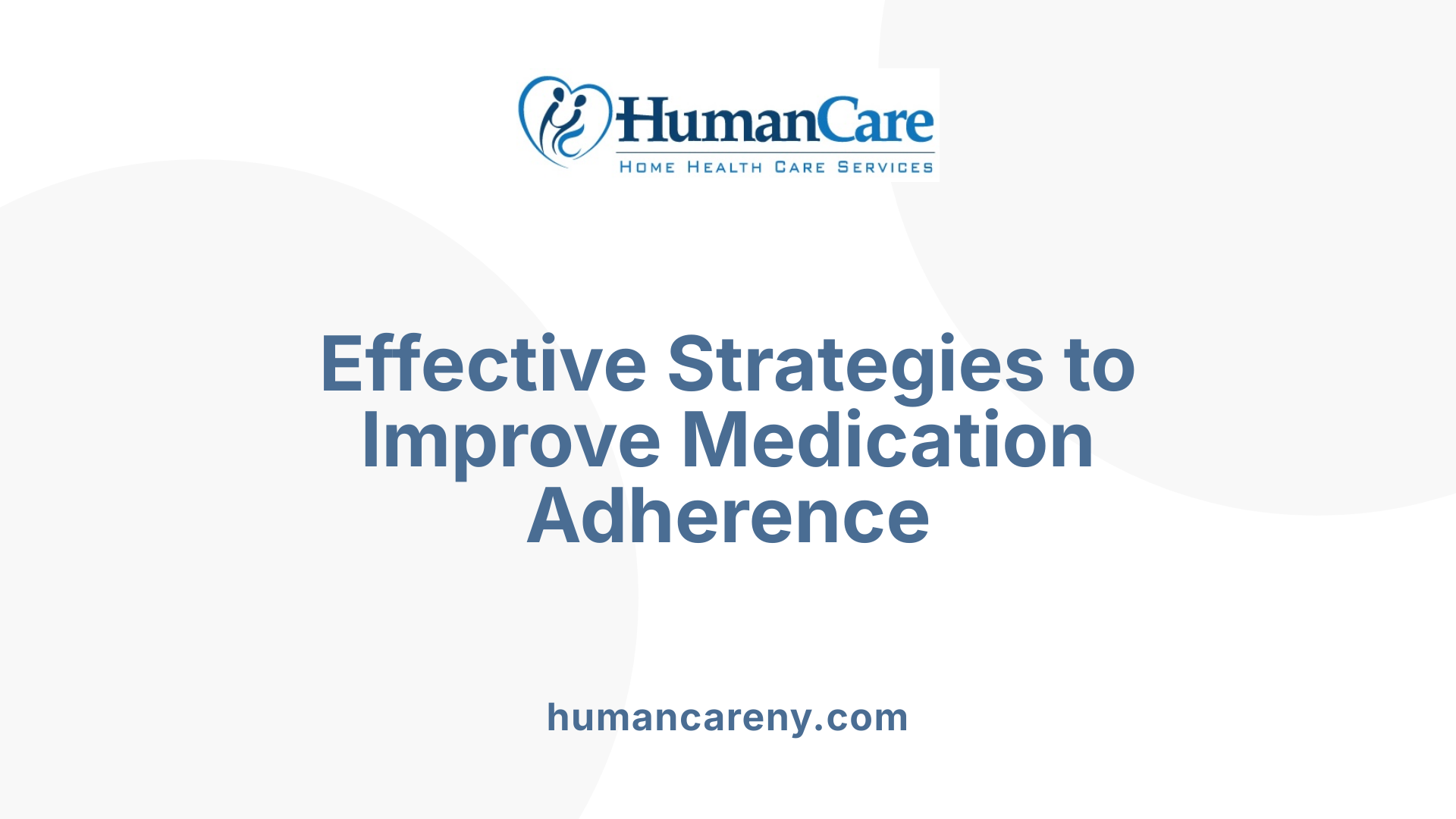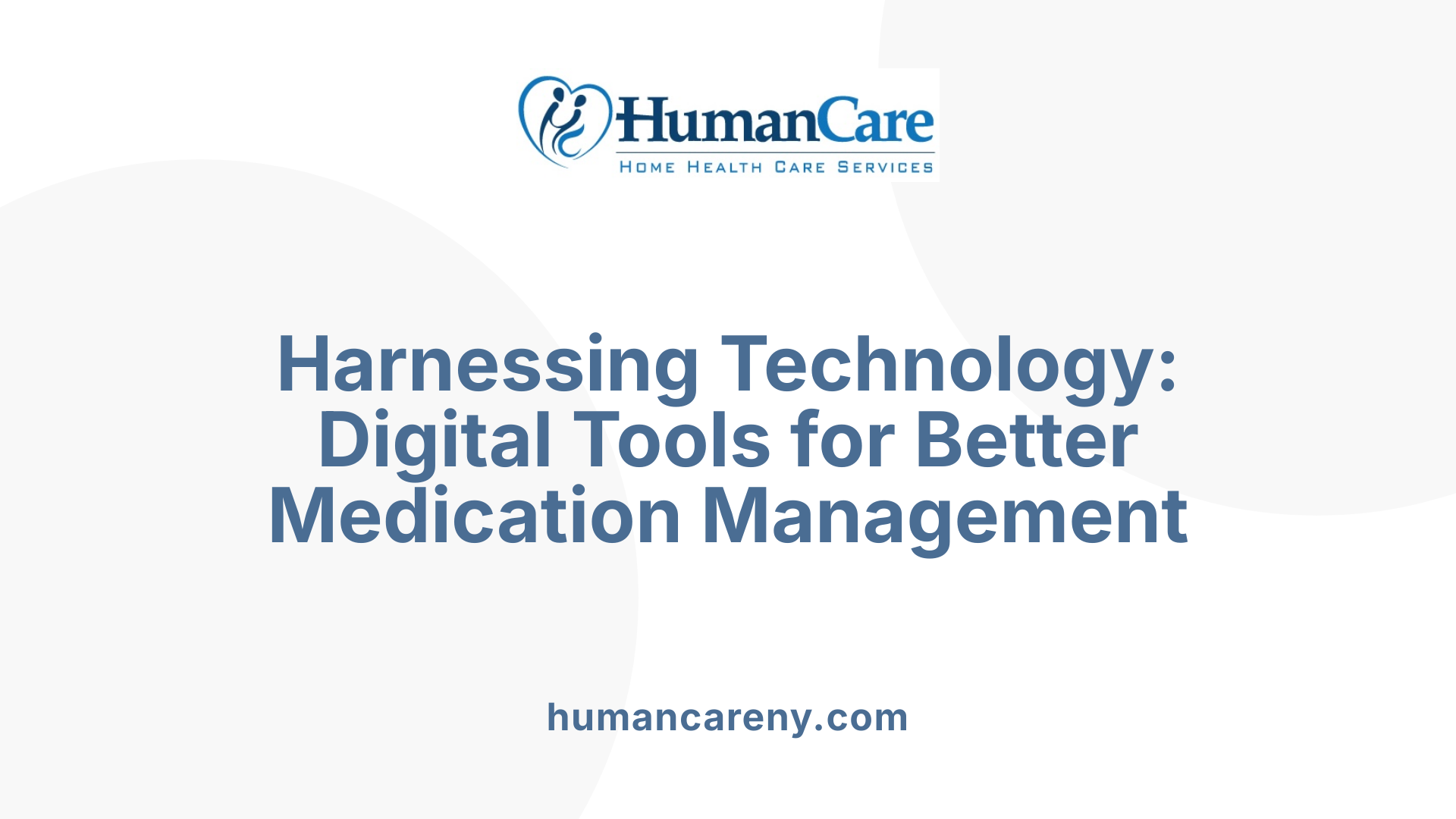Enhancing Medication Management through Support at Home
Homemaking services, especially when integrated with professional healthcare interventions, play a vital role in improving medication adherence, ultimately leading to better health outcomes. As chronic conditions such as hypertension, diabetes, and asthma require strict medication routines, these services address the practical, educational, and behavioral barriers that impede consistent medication use. This article explores how homemaking services contribute to medication adherence, supported by evidence-based strategies and innovative support interventions.
The Critical Role of Medication Adherence in Health Outcomes

Why is medication adherence important for health outcomes?
Medication adherence plays a crucial role in managing chronic diseases effectively. When patients follow their prescribed medication routines, they help prevent disease progression, reduce the risk of complications, and improve overall health.
Research shows that adherence to medications significantly lowers hospitalizations and emergency visits. For example, pharmacist-led home visit services improved medication adherence from 69.2% to 85.8%, resulting in better disease control and fewer health crises.
Poor adherence can lead to severe consequences, including worsening health conditions, increased healthcare costs, and preventable deaths. The CDC emphasizes that tailored pharmacy interventions, such as medication counseling, refill synchronization, and follow-up, are effective strategies to boost adherence.
Patients' active involvement, clear communication with healthcare providers, and helpful tools like reminders—through apps, pillboxes, or alerts—are essential to overcoming common barriers such as forgetfulness, side effects, or financial constraints.
In sum, maintaining consistent medication use is vital for positive health outcomes. It reduces the burden on healthcare systems by preventing complications and is particularly important in managing illnesses like hypertension, diabetes, and asthma. Supporting patients with education, reminders, and personalized plans is key to achieving these health benefits.
Enhancing Adherence through Patient Education and Engagement

How can patient education and engagement improve medication adherence?
Educating patients is a cornerstone of improving medication adherence. When patients understand the purpose of their medications, potential side effects, and proper administration, they are more likely to follow their prescribed routines effectively. This knowledge reduces uncertainty and builds confidence in managing their health.
Effective communication methods, such as reminders via text messages, emails, or phone calls, serve as practical tools to combat forgetfulness—a common barrier to adherence. These prompts help remind patients to take their medications on time, avoiding missed doses that can compromise treatment outcomes.
Strong relationships with healthcare providers also play a significant role. When patients feel comfortable discussing their concerns and barriers—be it side effects, cost, or complex regimens—they are more motivated to stay engaged with their treatment plans. Providing accessible educational resources, like pamphlets, videos, or interactive apps, can empower patients further, enabling them to make informed decisions.
Community outreach initiatives and multimedia resources extend the reach of educational efforts beyond clinical settings. Public health campaigns, social media, and community workshops help disseminate critical information and foster support networks that encourage continuous adherence.
Additionally, health policy changes, such as medication subsidies or the development of combination pills (polypills), can address practical barriers like cost and pill burden. These innovative approaches simplify medication regimens and make it easier for patients to adhere consistently, ultimately leading to better management of chronic conditions.
Through integrated efforts—combining education, reminders, strong healthcare relationships, and community support—patients are better equipped to understand, remember, and commit to their treatment plans, contributing significantly to improved health outcomes.
How Homemaking Services Support Medication Management
 Homemaking services are essential in helping patients effectively manage their medications, especially for those with chronic health conditions. A primary role of these services is organizing and storing medications to prevent errors and missed doses. Tools like pillboxes and blister packs are commonly used to keep medications sorted and easily accessible, reducing confusion and promoting proper intake routines.
Homemaking services are essential in helping patients effectively manage their medications, especially for those with chronic health conditions. A primary role of these services is organizing and storing medications to prevent errors and missed doses. Tools like pillboxes and blister packs are commonly used to keep medications sorted and easily accessible, reducing confusion and promoting proper intake routines.
Practical support includes setting up medication schedules, providing reminders, and assisting in keeping track of refill dates. Many clients benefit from digital aids such as smartphone apps or pill organizers with alarms, which enhance adherence by reminding patients when to take their medications. These interventions are particularly valuable in managing complex regimens or for patients with memory issues.
During home visits, nurses and caregivers monitor how medications are taken and observe for side effects or adverse reactions. This ongoing oversight allows for timely interventions, whether that involves adjusting dosages or communicating concerns to healthcare providers. The close contact also helps build trust and encourages patients to discuss difficulties they face, fostering a more proactive attitude toward health management.
Communication between patients and healthcare providers is another critical component facilitated by homemaking services. Nurses often relay information about medication effects or issues, ensuring that physicians receive accurate feedback for appropriate adjustments. This coordinated approach enhances safety and ensures medications are used correctly.
Patients generally report positive experiences with these services, noting improved self-management and a stronger relationship with their healthcare team. They value timely visits, compassionate interactions, and the increased expertise of providers regarding medication side effects and proper use. Overall, homemaking services contribute significantly to better medication adherence, which leads to improved health outcomes and quality of life.
Support Interventions and Strategies for Better Compliance

What strategies do homemaking services use to improve medication compliance?
Homemaking services employ a range of methods to boost medication adherence among patients, particularly those managing chronic conditions or facing mobility challenges. These strategies include organizing medications with pillboxes or blister packs, which help prevent errors and make complex routines easier to follow.
Reminders play a crucial role, with services often providing prompts via phone calls, visual cues, or scheduled visits to ensure patients take their medication on time. Enhancing understanding through patient education is also vital; homemaking staff assess patient knowledge, give clear instructions, and promote shared decision-making to foster a sense of ownership and compliance.
Environmental modifications are sometimes implemented by placing medications in accessible locations, like bedside drawers or kitchen counters, to ensure convenience and visibility. Additionally, these services work closely with healthcare providers and community organizations to coordinate care, share information, and address barriers such as forgetfulness, cost, or health literacy.
Simplifying medication regimens, for example through the use of combination pills (polypills), reduces the complexity of dosing schedules and improves adherence. Identifying individual barriers—such as financial constraints or limited understanding of medication importance—allows for tailored solutions.
Overall, homemaking services adopt a holistic approach that combines organization, education, environmental adjustments, and collaboration. These efforts aim to improve health outcomes by supporting patients in taking medications correctly, safely, and consistently.
The Power of Technology in Supporting Medication Adherence

What role does technology play in supporting medication compliance?
Technology has become an essential tool in helping patients take their medications correctly and consistently. Various electronic tools such as medication reminders, digital health applications, and electronic dispensers offer practical solutions tailored to individual needs.
Medication reminder devices, including alarms on pillboxes, smartphone notifications, and electronic dispensers, alert patients when it's time to take their medicines. These reminders help prevent missed doses and reduce errors, especially in complex treatment regimens.
Digital applications, often equipped with dashboards and calendars, assist patients in tracking their medication schedules. Educational features within these apps can boost medication knowledge, encouraging better adherence.
Real-time monitoring and data collection methods, like Medication Possession Ratio (MPR) and Cumulative Medication Gaps (CMG), allow healthcare providers to assess adherence patterns accurately. This data helps clinicians identify at-risk patients and intervene promptly.
Integration with pharmacy and clinical systems enhances communication between healthcare teams and patients. Automated alerts about refills, side effects, or missed doses facilitate timely support and adjustments.
Designing accessible digital solutions ensures that diverse patient populations, including those with visual or hearing impairments, can benefit from adherence tools. Overall, technology empowers both patients and healthcare providers, leading to improved health outcomes through better medication management.
Economic and Systematic Benefits of Supporting Medication Adherence
Supporting medication adherence through home care and intervention strategies offers substantial benefits both economically and systemically. When patients follow their prescribed medications, the risks of hospitalization and emergency visits decrease significantly. For instance, pharmacist-led home visit services have increased adherence rates from 69.2% to 85.8%, which directly correlates with fewer acute health events.
Improved adherence also enhances disease control, especially for chronic conditions like hypertension and diabetes, leading to long-term cost savings. Better disease management reduces the need for costly hospitalizations and emergency department utilization, easing the overall burden on healthcare systems.
Programs involving nurse practitioners and pharmacists have demonstrated dramatic reductions in medication nonadherence—up to 95% in some models after 180 days. Such improvements not only improve patient outcomes but also free up healthcare resources by decreasing the frequency of urgent care and long-term complications.
Furthermore, these systematic improvements promote more sustainable healthcare operations. Reducing unnecessary visits and preventing adverse health events lowers overall healthcare costs and decreases physician workload. This allows healthcare providers to focus on patients requiring more intensive care, ultimately leading to better population health management.
In summary, investing in medication adherence support through home visits, education, reminders, and combined interventions results in fewer hospitalizations, lower healthcare costs, and a more efficient healthcare system. These benefits underscore the importance of integrated approaches to medication management, with significant implications for economic sustainability and improved quality of care.
Fostering Better Health Outcomes Through At-Home Support
Homemaking services, complemented by professional healthcare interventions, exemplify a practical and effective approach to enhancing medication adherence. Their role in organizing, educating, monitoring, and supporting patients fosters safer medication practices, reduces errors, and improves health outcomes, especially in vulnerable populations such as seniors with chronic conditions. When combined with technological innovations and evidence-based strategies, homemaking services contribute substantially to reducing healthcare costs and preventing disease progression. Strengthening these support systems and ensuring timely, personalized care can transform the way chronic diseases are managed at home, leading to healthier lives and more resilient healthcare systems.
References
- Home Care Patients' Experiences with Home Care Nurses' Support ...
- Effects of pharmacist-led home visit services and factors influencing ...
- How Adherence Services Improve Health Outcomes Long-Term
- Care-at-home Capability: Improving Medication Adherence
- Effects of pharmacist-led home visit services and factors influencing ...
- Pharmacy-Based Interventions to Improve Medication Adherence
- CDC Grand Rounds: Improving Medication Adherence for Chronic
- Medication Management - A Homemade Plan
- MedHerent: Improving Medication Adherence in Older Adults With ...



